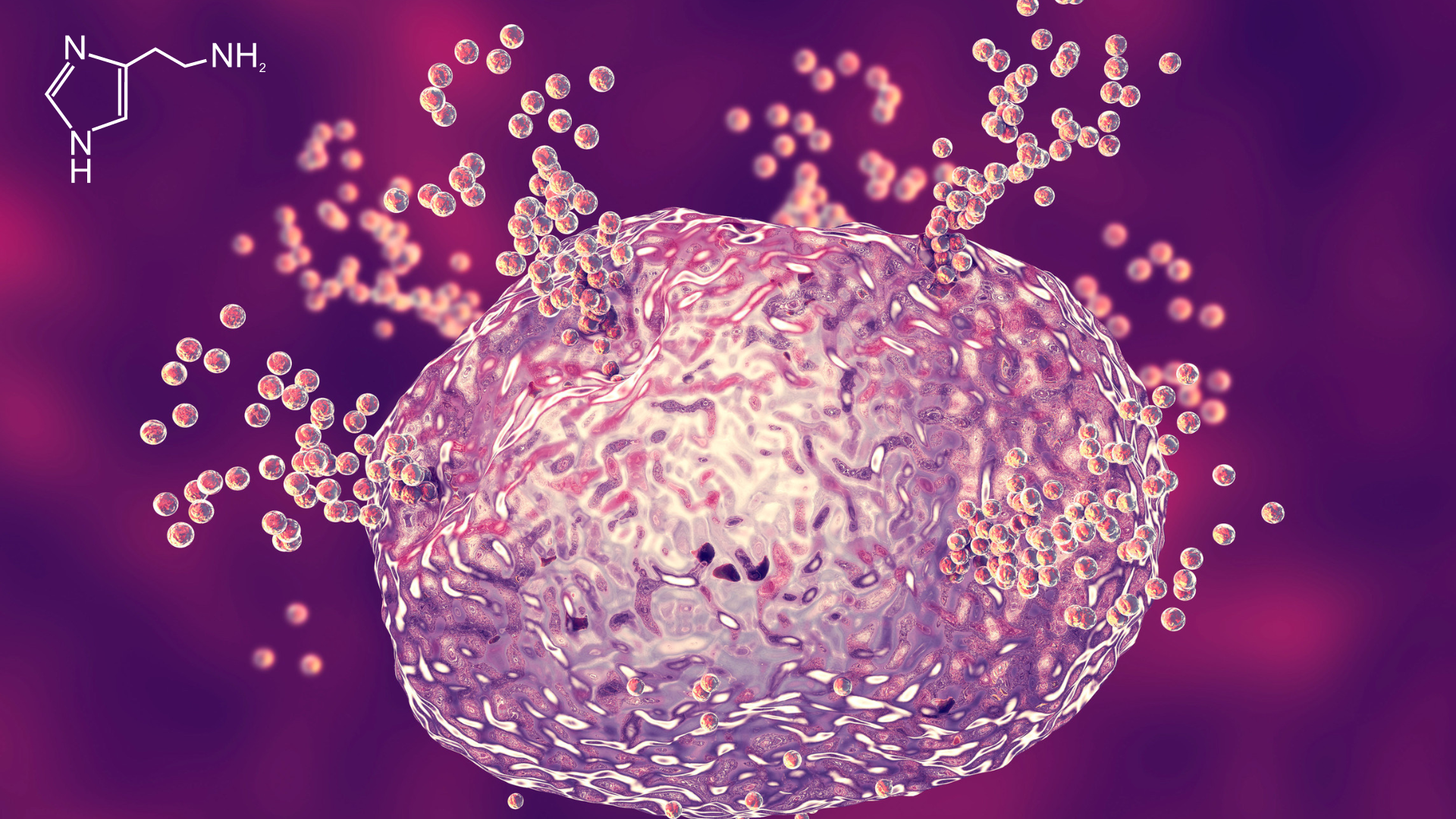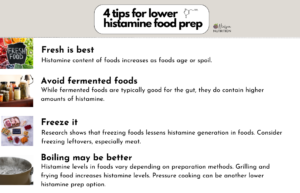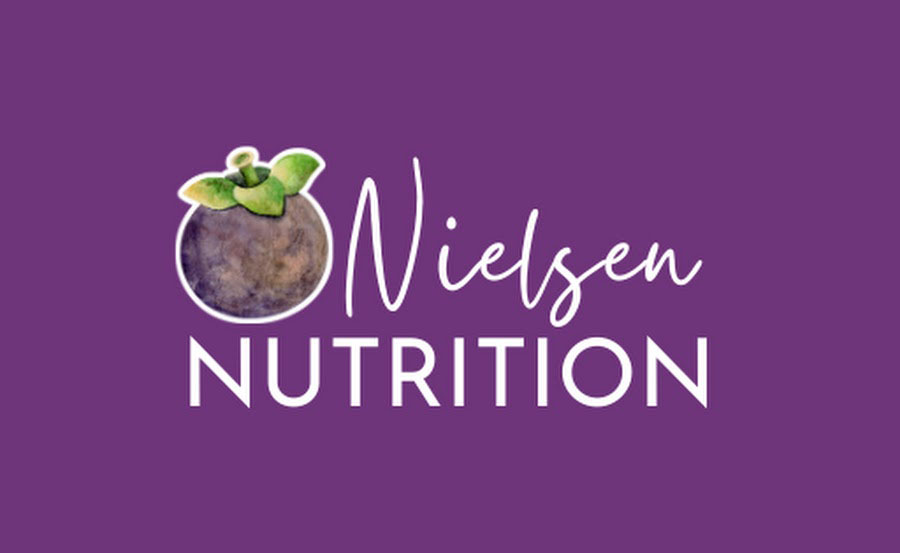
25 Apr 6 tips for dealing with histamine
Are you plagued by symptoms like headaches, bloating, or skin rashes that seem to arise mysteriously? If so, you might be experiencing histamine overload. Histamine is a compound naturally produced by the body and found in certain foods, and when levels become imbalanced, it can lead to a host of uncomfortable symptoms. Fortunately, there are several strategies you can employ to alleviate histamine-related issues and reclaim your well-being.
Here are six effective tips for dealing with histamine overload:
Incorporate a HEPA Air Purifier
Improving air quality can make a significant difference for those sensitive to histamine. A HEPA air purifier can help filter out allergens and airborne particles, including histamine, providing cleaner air to breathe indoors. By reducing your exposure to histamine in the environment, you can minimize the risk of triggering symptoms and enjoy greater comfort in your home or workspace.
Try Nasal Irrigation with a Neti Pot or Saline Spray
Nasal irrigation is a simple yet effective method for clearing out allergens and irritants from the nasal passages, helping to alleviate congestion and reduce histamine-related symptoms such as nasal congestion and sinus pressure. Using a Sinus Rinse or saline spray can flush out excess mucus and allergens, providing relief and promoting clearer breathing.
Explore Natural Remedies like Nettle Tea and Raw Honey
Nettle tea is renowned for its anti-inflammatory properties and ability to inhibit histamine release in the body. By enjoying a soothing cup of nettle tea regularly, you can help mitigate histamine-related symptoms and support overall well-being. Additionally, raw honey contains enzymes that may aid in the breakdown of histamine, making it a sweet and natural option for combating histamine overload.
Nourish Your Gut with Healing Foods and Greens
A healthy gut is essential for proper histamine metabolism, so focus on nurturing your digestive system with gut-healing foods and plenty of greens. Incorporate foods high in zinc, glutamine, and other gut healing nutrients into your diet to support gut health and promote a balanced microbiome. By prioritizing gut health, you can improve histamine tolerance and reduce the severity of symptoms. You may also consider avoiding high histamine foods, as well as taking measures to reduce histamine in the prep/storage of leftovers.
Consider Histamine supportive supplements
Certain supplements can help block the effects of histamine or support its breakdown in the body, providing relief from histamine overload. Quercetin, vitamin C, and DAO (diamine oxidase) supplements are commonly used to reduce histamine levels and alleviate symptoms of histamine intolerance. Seeking Health, ProBiota HistaminX can be another helpful supplement to combat histamine. It contains only probiotic species that are considered “histamine-friendly” and excludes those known to produce histamine in the gut. Consult with a healthcare professional to determine the appropriate dosage and supplement regimen for your individual needs.
Manage stress
Remember, finding the right approach for managing histamine intolerance may require some trial and error, so be patient with yourself and stay committed to your health journey. With persistence and the right support, you can find relief from histamine-related symptoms and get back to living your life once again. While it’s impossible to eliminate all stressors from our lives, we can take proactive steps to support our bodies and minds in coping with stress more effectively. Incorporating stress management techniques into our daily routines, such as meditation, deep breathing exercises, or movement, can help reduce feelings of anxiety and promote relaxation. Additionally, engaging in regular physical activity, prioritizing adequate sleep, and practicing mindfulness can all contribute to better stress management. It’s also important to nurture supportive relationships and seek help when needed, whether through talking to a trusted friend or seeking professional guidance from a therapist or counselor. By taking proactive measures to support our lives and manage stress, we can cultivate resilience and enhance our overall quality of life.
Here’s to a healthier, happier you!

The information provided on Nielsen Nutrition is for general informational purposes only. It is not intended to be a substitute for professional advice, diagnosis, or treatment. Always seek the advice of your physician or other qualified health provider with any questions you may have regarding a medical condition. This post may contain affiliate links, which means that we may earn a commission if you make a purchase through these links. This is at no additional cost to you and helps to support the maintenance and growth of the blog.


Sorry, the comment form is closed at this time.